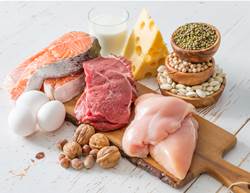Eating raw food is one of today’s hottest dietary trends. So does this mean you should pause and think twice before obliterating the nutrients in your food every time you cook it?
On the pro side, if you are currently eating a lot of processed food, then switching to raw food will be a clear nutritional win: fruits and vegetables are high in nutrients and fibre and low in kilojoules. But where the science gets murky is the claim that raw food is better because cooking destroys the enzymes found in plants. Cooking will do this. But so too does digestion. Few enzymes survive their trip through the hydrochloric acid spa bath in the stomach. And those plant enzymes are essential only to the plants. The human digestive tract makes all the enzymes needed for digestion.
Is raw food a good idea?
Choosing an exclusively raw-food diet can potentially put a person at a small disadvantage. When you exclude all cooked foods, you also exclude many healthy foods, and the nutrient diversity of your diet narrows.
Take the nutrient powerhouses of beans and lentils. When cooked, they have many health benefits, including the prevention and management of obesity, heart disease and stroke, diabetes and metabolic syndrome.
Cooking can also destroy some of the anti-nutrients found in foods that interfere with absorption.
Putting nutrient losses from cooking into context, just storing fruits and vegetables for several days means a gradual loss of vitamin C. Fresh will always be best, but frozen vegetables are certainly an option to consider as they are blanched and frozen very soon after picking, effectively “locking in” their nutrients for months.
The benefits of cooking
There are hundreds of bioactive compounds found in plant foods that serve as antioxidant and anti-inflammatory agents and have anti-cancer and antibacterial roles as well.
In many cases, cooking actually increases the levels of some of these substances. That’s because heating food breaks down plant cell walls so they can release more of the nutrients.
A good example is the beneficial antioxidant, lycopene (which gives foods like tomatoes their red colour) which is much higher in cooked tomatoes than raw ones. Heat breaks down the plants’ thick cell walls, making more of the nutrients available to absorb.
Boiling and steaming or frying carrots, zucchini and broccoli has been shown to increase their antioxidant levels compared to the raw state of the food.
Getting the most out of food
Worrying about losing some vitamin C every time you stir-fry or steam your vegetables fades into insignificance when you consider that most people are not eating enough of these foods in the first place.
If cooking makes them tastier and more palatable then you are more likely to eat them. That is where the biggest health gains are to be had.
Dr Tim Crowe is an Advanced Accredited Practising Dietitian. Find more topical stories
like this at his website thinkingnutrition.com.au






.jpg&h=193&w=250&c=1&s=1)



